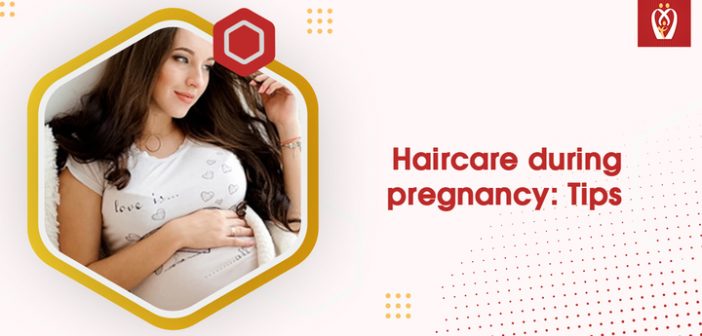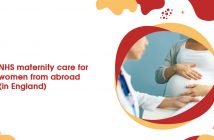Pregnancy hormone surges are responsible for a slew of physical changes, including alterations to our hair. Hence, haircare during pregnancy is important.
Increased oestrogen levels during pregnancy alter the hair follicle cycle, leading many women to hold on to more of their hair for a longer period of time, only to lose part of it within a few weeks following the birth of their child.
When it comes to haircare during pregnancy, following a healthy regime and being aware of these changes may go a long way toward protecting your hair, which is why we’ve put together this guide to help you take good care of your locks during your pregnancy and beyond.
While pregnant, how do hormones affect our hair?
There are three phases in the typical life cycle of hair: growth, resting, and, ultimately, the shedding phase, when hair naturally falls out of the scalp and creates room for new growth. Due to a temporary halt in hair loss during pregnancy, many women notice their hair becoming thicker and more lustrous around the 15th week.
As oestrogen levels return to normal after the delivery of a child, many women may notice some hair loss in the weeks following the birth, which is why haircare during pregnancy is crucial, even if your hair looks thick and healthy during pregnancy.
Hearing this for the first time may be rather unsettling, so knowing why it occurs is essential! The delayed shedding of the additional hairs you hung onto throughout pregnancy is what is causing the excess hair to accumulate in your hairbrush or shower, which may be unpleasant. Having the knowledge that this is a common occurrence and that your hair will return to its pre-pregnancy cycle within a few months may be a big source of comfort.
Healthy haircare during pregnancy
Despite the fact that there is nothing you can do to alter your hair’s growth cycle during pregnancy, there are actions you can do to guarantee that your hair is well-taken care of, nourished, and less likely to fall out after childbirth.
A healthy diet is critical for the growth of both you and your child, as well as for the health of your skin and hair. As a pregnant woman, your hair and skin may benefit from a diet rich in protein, iron, and other essential vitamins and minerals.
When it comes to haircare during pregnancy, the appropriate hair care products may make all the difference.
During pregnancy, your hair’s moisture levels might fluctuate, so it’s critical that you keep them topped up.
Pregnant women, who may suffer hair loss as a result of hormonal changes, may benefit from another crucial component, black castor oil.
Not only does black castor oil promote hair development, but it also soothes and relieves itchy, dry scalps and protects hair from over-styling, making it an all-around hero product.
Most women’s hair loss peaks about four months after childbirth, and it returns to normalcy between six and nine months afterwards. As long as you’ve been following a routine when it comes to haircare during pregnancy, you should see a return to pre-pregnancy hair growth by the time your child turns one.
Take breaks
It’s also a good idea to give your hair a break from regular styling and treatments such as straighteners and curling wands for a while, but refrain from using chemicals and dye until after your baby is born. Hairstyles that require twisting the hair firmly or securing it with bands should be avoided to further reduce breakage, which is a fantastic reason to let free for a time! In addition to letting your hair air dry or using a low-medium heat setting on your hairdryer, try detangling it with a wide-tooth comb.
Self-care activities like having a warm bath, lighting candles, practising yoga or meditating, or curling up with a good book may help you recharge your batteries. It will benefit you and your baby, as well as your hair and your whole body and mind!







